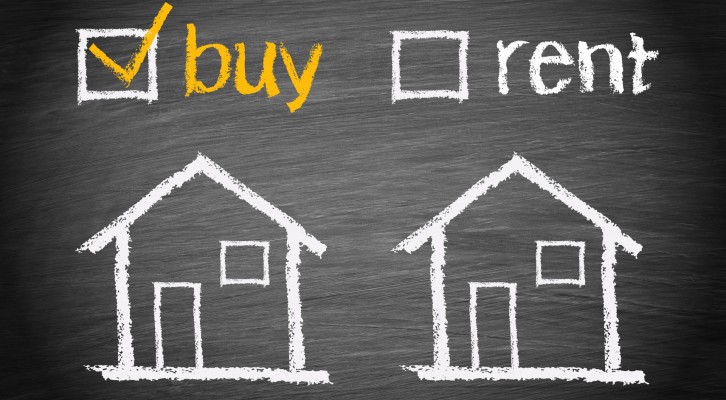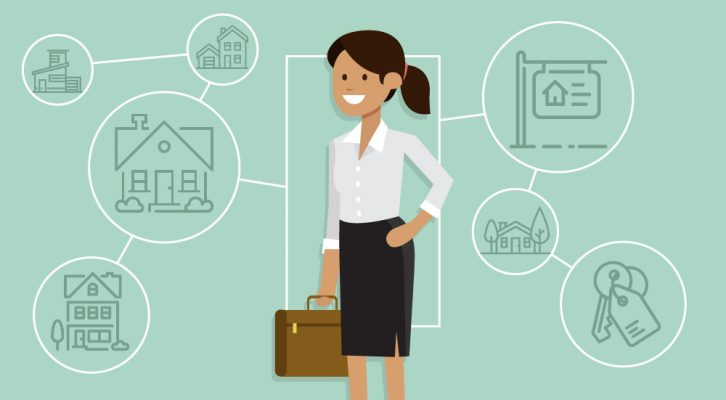Your decision to buy a Flat should be based on your financial well-being, not the housing market.
The scenario: Your landlord keeps hiking up your rent, and you’re tired of reworking your budget to accommodate the other areas of your life—or worse, searching for a new rental. You want to invest in a Flat for sale in London but you’re not sure if now is the right time, so you start asking yourself the question: Should I buy a Flat?
Deciding if you should rent or buy can be determined in part by your commitment to an area—you could have legitimate concerns about job relocation or you may wonder if the space you can afford now will be flexible enough that you won’t grow out of it just a few years down the road. And on an economic level, perhaps you’re not sure you can afford all the costs that a down payment, mortgage, and home maintenance entail. Here are some questions to consider.
Should you buy before flat prices climb higher?
In most parts of in UK flats prices have been climbing steadily for the past few years. Does this mean you should rush to lock in the current prices before they rise even higher? The best answer: not necessarily. Do what’s right for you. If you’re planning to stay in one spot for a decade or more, short-term fluctuations in the house’s underlying value shouldn’t make a difference. After all, the primary purpose of a home is to provide a place to live, coupled with an opportunity to grow equity over time. Don’t overanalyze the market when deciding to buy a house. If the time is right for you, there’s no reason to wait.
Do you have a 20 percent down payment?
One of the major factors in determining if the time is right to buy a house: whether you have the finances to purchase one. Many lenders require a 20 percent down payment before they’ll grant you a mortgage. If you can’t come up with such a hefty down payment, it’s possible to secure a loan, but you’ll probably have to pay private mortgage insurance, or PMI, to make up the difference.
PMI rates vary from lender to lender but generally cost 0.05 percent to 1 percent of the total loan amount. At 0.05 percent, you’ll pay $41.50 per month for every $100,000 worth of loan that you carry. If you’re holding an FHA-insured loan, you pay two different mortgage insurance premiums. The upfront premium is 1.75 percent of your loan size, and it will be added to your borrowed amount (thus increasing your monthly costs). You’ll also pay a second premium, which is assessed annually and billed monthly. This second fee, often known as monthly mortgage insurance, will cost 1.3 percent annually if you carry a 30-year mortgage and put down at least 5 percent.
The bottom line? Not having a 20 percent down payment on hand can be a very expensive proposition. If you borrow $200,000, for example, and you’re charged 1% PMI, you’ll hand over $166 per month — not an insignificant sum.
Can you budget for recurring monthly expenses?
Your mortgage payment is the heftiest of all monthly payments. It comprises four items: principal, interest, taxes, and insurance. (Together, these are known as PITI.) If you have a fixed-rate mortgage, your principal and interest will remain a flat monthly fee, regardless of what’s happening in the overall economy. However, your taxes and insurance may change, so even with a fixed-rate mortgage, your payment could fluctuate. Taxes are set by your county government and are based on its assessment of your property, so this expense is subject to increase at any point—either if your county reassesses your home at a higher value or if your local government decides to boost its tax rates.
Ask yourself: Do you have the space in your budget to accommodate that type of tax increase? If your budget is so tight that this will cause you to miss payments, you’re probably not in a strong enough position (right now) to buy a home. Likewise, you might decide to buy a home in a community that’s governed by a homeowners’ association, or HOA. This HOA can assess mandatory “dues” and put a lien on your house if you don’t pay the bill. And the HOA can decide to raise its dues at any point. Do you have enough wiggle room in your budget to accommodate a fee hike?
Do you have savings for maintenance and repairs?
Your mortgage isn’t the only housing expense you’ll need to meet in your budget. When you move from a rental to a home, you have new responsibilities (and the related costs), such as cleaning the gutters, replacing or repairing the roof, fixing and maintaining the HVAC, refinishing the floors, hiring a plumber, installing a new dishwasher, and repairing a broken garbage disposal.
As a very broad rule of thumb, you should budget 1 percent of the home’s purchase price annually for repairs and maintenance. For example: If your home is worth $300,000, set aside $3,000 per year, or $250 per month. You probably won’t spend this amount each month. Some months, you’ll spend zero. But another month, you may need to replace every window in your home—and could rack up a $7,500 bill.
How long will you stay in your flat?
Buying and selling a home incurs thousands in closing costs—including inspections, title insurance, transfer tax, attorney fees, and real estate commissions. If you’re going to hold on to your home for several years, those costs will spread themselves out over time. But if you might be selling your home after two or three years, those costs (in addition to property taxes, homeowners insurance, mortgage interest, and maintenance) might add up to more than what you would have paid in rent.
How did you decide whether to rent or buy? Share your experiences in the comments!
Source: Trulia.com


























